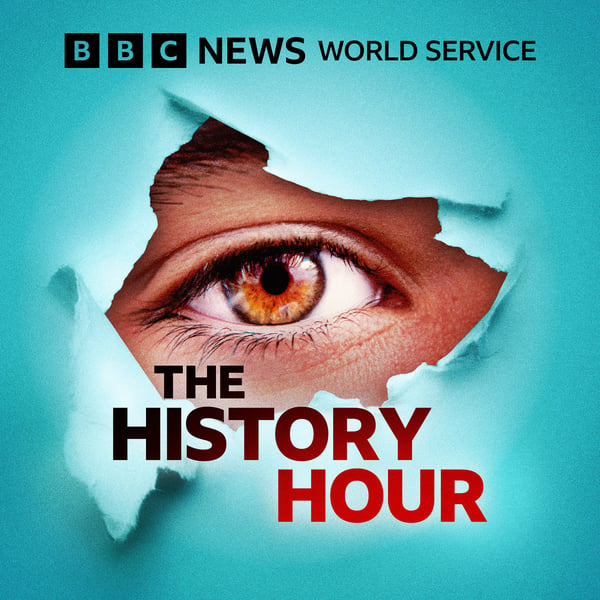Rescuing Palmyra’s treasures and 80 years since VE Day
The History Hour
BBC
4.4 • 879 Ratings
🗓️ 10 May 2025
⏱️ 51 minutes
🧾️ Download transcript
Summary
Max Pearson presents a collection of the week's Witness History interviews from the BBC World Service. Our guest is Rubina Raja, professor of classical archaeology and art at Aarhus University in Denmark.
First, we go back to May 2015, when the ancient city of Palmyra in Syria was about to fall to Jihadist fighters and how of a group of men risked their lives to preserve the world-famous archaeology.
Plus, the entrepreneur and engineer Yoshitada Minami and his wife Fumiko Minami who came up with a way to liberate women from two to three hours of housework a day through the invention of the rice cooker in 1955.
Then the story of the sinking of the Lusitania, the British ocean liner sunk by a German submarine off the coast of Ireland during the First World War.
Also, celebrating 80 years since the end of the Second World War in Europe we dive into the BBC archives to listen to correspondents capturing the scenes of joy across London on VE day in 1945.
Finally, how in 2000, keen cricketer Paul Hawkins wanted to turn his passion into innovation when he created the technology we now known as ‘HawkEye’.
Contributors:
Khalil Hariri - archaeology expert who worked at Palmyra’s museum Rubina Raja - professor of classical archaeology and art at Aarhus University in Denmark Aiji Minami - son of Yoshitada and Fumiko Minami Margaret Hague Thomas – passenger on the Lusitania Leslie Morton – merchant seaman on the Lusitania Paul Hawkins – founder of ‘Hawkeye’
(Photo: Palmyra. Credit: PHAS / Universal Images Group via Getty Images)
Transcript
Click on a timestamp to play from that location
| 0:00.0 | Hello, Russell Kane here. |
| 0:03.0 | I'm back for another season of character assassinating the nice guy |
| 0:06.4 | and binging up the baddies in evil genius. |
| 0:09.2 | Yep, even the biggest legends have their skeletons. |
| 0:12.0 | So join me and a panel of brilliant comedians to weigh in |
| 0:15.1 | on whether the biggest players in history are more evil or more genius. |
| 0:19.0 | I just think every celebrity, said with respect, Russell, is out of their minds. |
| 0:26.5 | Evil genius with Russell Kane. |
| 0:28.6 | Listen first on BBC Sounds. |
| 0:36.4 | Hello and welcome to The History Hour from the BBC World Service with me, Max Pearson, |
| 0:41.6 | a collection of this week's episodes of witness history, the past brought to life by those who were there. |
| 0:46.7 | This week we mark 80 years since the end of the Second World War in Europe. |
| 0:51.0 | No more flying bombs, no more rockets, no more of that sinking feeling, you've |
| 0:56.1 | gotten the pit of your stomach as the ambulance bell rang. It's all over. And the Japanese |
| 1:01.8 | invention of the electric rice cooker in 1955. It liberated women from the labor, which |
| 1:09.3 | tie them up for two to three hours' day. |
| 1:12.8 | The reputation spread, and housewives sent a large number of thank-y letter. |
| 1:18.3 | But first, rescuing treasures from being destroyed by the so-called Islamic State. |
| 1:24.5 | In 2015, when the ancient Syrian city of Palmyra was about to fall to jihadist fighters, |
| 1:30.4 | a group of men risked their lives to save centuries-old artifacts from the city's museum. |
| 1:36.3 | Halil Hariri, an archaeology expert who worked at Palmyra's museum, has been telling Josephine |
| 1:42.1 | McDermott about his passion for its history |
... |
Please login to see the full transcript.
Disclaimer: The podcast and artwork embedded on this page are from BBC, and are the property of its owner and not affiliated with or endorsed by Tapesearch.
Generated transcripts are the property of BBC and are distributed freely under the Fair Use doctrine. Transcripts generated by Tapesearch are not guaranteed to be accurate.
Copyright © Tapesearch 2025.

